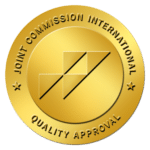Table of Contents
Table of Contents
most cases, it starts with a single drink to wind down after a stressful day. However, you soon notice a stash of alcohol in the home. Drinking gets you through those busy days and makes life tolerable. Sometimes, you just do it to pass the time.
The National Institute on Alcohol Abuse and Alcoholism indicates that 25.8 percent of people aged 18 or older had engaged in binge drinking at least once a month in 2019. This report also concluded that about 6.3 percent had heavy alcohol use within the month.
It is estimated that about 14 million adults have alcohol use disorder within the United States. Those large numbers are a huge concern for many experts and individuals caught in the cycle.
You don’t have to fear quitting drinking. Crestone has many treatment plans available to help. Please call to request assistance today! If you’re not quite ready, let’s dive deeper into the advantages of stopping.
What Does Alcohol Abuse Disorder Look Like?
Before cutting back on your alcohol consumption or stopping entirely, you should reflect on how much you drink and how dependent you are on it.
Many people quit drinking alcohol for various reasons, such as having better skin and reducing their cancer risk. If you struggle with alcohol use disorder, the first step can mark a new beginning in your life.
Alcohol use disorder can range in severity from severe to moderate to mild. Factors that determine this include how dependent you are on the substance and what symptoms you experience.
Common symptoms include:
- Putting yourself in dangerous situations
- Spending most of your time drinking
- Developing a tolerance
- Strong urges to drink
- Difficulty limiting your amounts
- Inability to cut back
What Are the Health Risks of Significant Alcohol Consumption?
If you drink alcohol heavily, it could take a toll on your mental and physical health. It reduces your ability to make sound judgments and can also increase your risk of developing:
- Heart disease
- Miscarriage
- Congenital disabilities
- Liver disease
- Stomach ulcers
- Cancer
These are just some of the physical risks you can reverse or avoid by quitting drinking!
Deciding to Stop Alcohol Dependence – Making a Change with the Help of Crestone
You’ve decided to quit drinking alcohol. Congratulations!

Though it’s admirable and beneficial to you, quitting drinking isn’t something you can accomplish overnight. In fact, it might be challenging if you’ve drank heavily for a while, though it’s possible with our help!
You’ve likely developed a substance use disorder, and finding the best treatment program can make it a little less scary and a bit safer.
Crestone Detox Austin – Alcohol & Drug Rehab offers many services, so we recommend that you call and see how we can help you. Our approach focuses on healing the spirit, mind, and body while you learn how to cope and live with long-term recovery.
Quitting alcohol is easier when you use professional programs. You learn about addiction, how to cope with stress, and prevent relapse. Still, alcohol misuse treatments can’t guarantee that you will have an easy time. Part of the problem is that alcohol changes your brain.
What Happens to Your Body When You Stop Drinking Alcohol?

Heavy drinkers who suddenly stop drinking are sure to experience alcohol withdrawal symptoms. They can include alcohol cravings, trembling, sweating, insomnia, moodiness, headaches, anxiety, and nausea.
However, your body gradually gets healthier and doesn’t crave more alcohol with time. Once you stop drinking, you start to recover from the damage done, but ideally, you want to seek addiction treatment for the best results.
The Many Physical and Mental Health Benefits of Quitting Alcohol
Quitting alcohol results in many emotional, mental, and physical benefits. They include:
Look Younger and Have Better-looking Skin

Consuming alcohol causes dehydration, which affects your bodily symptoms. However, you may not realize that it also leads to dry skin. If you’re younger when you quit, you might find that your skin bounces back.
Body tissue inflammation is also an issue. Inflamed skin gives you a reddish appearance and can damage the skin over time. Sagging and loose skin is also a concern with heavy drinking. Collagen levels get depleted quickly, so your cells can’t strengthen or regenerate.
Improve Your Sleep Cycle
Alcohol is a depressant, so it makes you drowsy, but it also lowers coordination and motor function. That’s why you shouldn’t drive after drinking.
When consumed in excess, alcohol also lowers your sleep quality and might lead to insomnia. You may get interrupted and never reach that rapid eye movement (REM) sleep, so you might be sleepy in the daytime.
Individuals with alcohol use disorder usually experience insomnia symptoms. You use it to fall asleep but don’t get enough. Then, you try combating the sleepiness with stimulants, going back to alcohol to be tired once again.
Giving up alcohol altogether is often the best way to improve your sleep habits!
Achieve a Healthy Weight

Alcohol often has high amounts of calories, but they’re empty calories. Therefore, they don’t offer nutritional value to your body. Other foods like this include donuts, cookies, and cake.
Often, those empty-calorie items are appealing because they’re seen as comfort foods. However, that leads to excess fat in the body.
You may not know this, but alcohol calories are stored as sugar and converted to fat. If you are trying to lose weight or get to a healthier weight, you must limit how many sweets you eat and how many alcoholic beverages you consume.
Quitting alcohol can help you attain a healthy weight and might even reduce your high blood pressure, and lower your cholesterol with time.
Reap All the Mental Health Benefits
Heavy drinking is linked to other illnesses, such as bipolar disorder, schizophrenia, anxiety, and depression. Some people turn to alcohol for self-medication of their mental illness issues.
However, alcohol often worsens those symptoms. This leads to a vicious cycle where you self-medicate and feel poorly, repeating the process over and over.
Overall, heavy drinking can lead to the “moral hangover.” This means you feel uneasy, regretful, or guilty after doing something you shouldn’t have done while intoxicated. We understand how upsetting it can be, but our team is here to assist!
Save Money

When you stop drinking, you can save a lot of money. Imagine how many times per week you buy alcohol. It’s not cheap, especially in this day and age. Whenever you quit, you might be able to save up that cash and use it for a vacation or necessities you’ve been neglecting.
Those who go to bars often find themselves indulging in fruity cocktails or buying drinks for others. That also adds up. It’s easy to pass the buck when you’re having a good time, but you soon regret how much you spent when the next day rolls around!
Improve Your Nutrition
Those who drink heavily are often malnourished to some degree. Excessive drinking causes your body to deplete its important nutrients. You may not eat healthy foods or skip meals all the time because you’re focused on consuming alcohol. However, that’s not enough to keep you alive and well.
In a sense, you’re not getting the fat, protein, vitamins, and carbohydrates you need. This means less energy and the inability to function properly. Quit the habit with the help of Crestone!
Lower Your Cancer Risk

We now know that some cancers are more common for those who drink heavily. They include breast cancer, colon/rectum cancer, larynx cancer, esophagus cancer, liver cancer, and mouth/throat cancer.
Alcohol is considered a known carcinogen, which means it’s got the potential to cause cancer. While you may not get it yourself, you’re at a higher risk because of your excessive alcohol consumption.
There are many factors that increase that risk of developing alcohol-related cancers. They include how much time you spend drinking, how much you drink at one time, and how long you’ve excessively consumed alcohol.
Generally, we feel it’s best to avoid alcohol altogether to reduce your risk. While it might not be easy, we’re here to help you!
Save Your Liver
Drinking is bad for your liver, so quitting drinking can help you improve your health in that area.
The liver processes the alcohol, and it’s not easy to do. When you have a large amount, the liver works hard and gets tired from doing the job all the time. It wasn’t meant to handle heavy or frequent periods of drinking! Over time, you can develop cirrhosis, fatty liver syndrome, or hepatitis.
If you quit drinking, it’s a great move to ensure that your liver stays healthy. Since it’s regenerative, it can repair itself over time. Let us help you take that first step!
Strengthen Your Thinking and Memory Capabilities

Heavy alcohol use has now been linked to difficulty focusing and memory loss. Sometimes, it can become permanent.
Alcohol is a depressant, so it slows your body’s systems down. Nerves don’t communicate efficiently and can affect the hippocampus. This part of the brain helps store and create memories.
When you stop drinking, you allow the body to repair itself. If it hasn’t been too long, you may be able to start creating memories again, though you could end up with dementia because of your prolonged alcohol use.
Maintain and Develop Positive Social Relationships
An alcohol addiction takes up most of a person’s time. They focus on their next drink and often ignore their relationships with people. However, they soon realize how much they consume and get anxious or fearful about what to do.
Quitting alcohol is the best step you can take, and we’re here to help you overcome your addiction!
Find New Hobbies and Explore Your Personal Interests

Drinking takes a lot of time away from other things. Therefore, quitting alcohol often helps you learn why you drank, what you can do instead, and develop new hobbies.
You might have enjoyed woodworking, crocheting, or playing video games. Quitting alcohol lets you go back to those personal interests and develop new ones!
No More Hangovers
Quitting alcohol now means you never have to experience a hangover again. Those headaches and nausea can be a thing of the past!
Have More Energy
You learned earlier that you don’t eat healthily when you’re drinking all the time. Once you quit drinking, you often start eating right again, which means you have more energy!

Work with Crestone Detox Austin
You’ve just learned the benefits of quitting alcohol. Many people suffer from alcohol abuse, but they don’t have to go through it alone.
If you want to quit alcohol, it’s crucial to choose the right addiction treatment program, and Crestone has what you need. Our team helps you learn why you turned to alcohol, which is the first step. Then, you find other methods for dealing with stress and daily life.
Are you ready to say that was your last drink? Call us today to get started on your new journey toward an alcohol-free lifestyle! We’re here for you!





